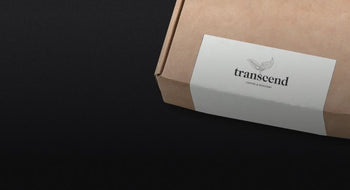
Things you wanted to know about coffee.
Frequently Asked Questions
Do you have one or two burning questions about coffee that you would like answered? We have curated a number of frequently asked questions about coffee on this page for your enjoyment. If you don't see your question answered here, please email us; we will happily answer it for you.
Frequently Asked Questions about Coffee
Are spent coffee grounds good for my garden?
While there is much conflicting information about whether coffee grounds are good for your garden, the science suggests that it is not a good idea to cover your garden with spent coffee grounds.
The idea that coffee grounds acidify your soil, is largely disproved as coffee grounds are neutral in terms of ph. Read More.
Which coffee has the most caffeine?
Most of the coffee consumed globably, espically specialty coffee, is Arabica. All of the coffee that Transcend sources is Arabica. On average, a single arabica coffee bean contains 1.9 milligrams of caffeine (1.2 - 1.5 grams of caffeine per 100 grams of coffee).
Another species of coffee is commonly known as Robusta. This coffee bean is larger than Arabica and has almost twice the amount of caffeine than does arabica. An average single bean of robusta has 2.9 milligrams of caffeine (2.2 - 2.7 grams per 100 grams of robusta coffee). Read More.
What is the best coffee grinder?
Obviously, this question is somewhat subjective. Best is always a loaded word, but with that said, there are some grinders out there that are a cut above the rest.
Firstly, the best coffee grinder is always some form of a burr grinder. Blade grinders are simply not great for grinding coffee as they are designed to pulverize whatever goes into them.
Best also is dependant on the type of brewing you are engaged in. Are you brewing espresso or a french press? This will impact which grinder is best. And as with all things, how much money you want to spend will also impact the choices you have.
We think a great place to start exploring grinders is Eight Ounce.
What is Specialty Coffee?
Specialty coffee is a term used to describe high-quality and artisanal coffee that offers unique and exceptional flavours and attributes. This coffee has been carefully cultivated, processed, roasted, and brewed to provide a superior taste experience.
The SCA technically defines specialty coffee as coffee which possesses less than one full defect. This is a technical evaluation criterion, which, is our experience, is very rarely, if ever, a standard which is ever met.
One of the defining characteristics of specialty coffee is the focus on the origins of the beans. Specialty coffee often comes from specific regions or even single estates, allowing for greater traceability and transparency in the supply chain. This emphasis on traceability enables consumers to know exactly where their coffee comes from and supports sustainable farming practices.
Quality is also a crucial component of specialty coffee. The cultivation of specialty coffee involves meticulous attention to detail at every stage of production, from the farming and harvesting to the processing and roasting. Specialty coffee beans are usually hand-picked when they are at their peak ripeness, ensuring optimal flavor development. The cherries are processed using methods that maintain the purity and quality of the beans, such as the washed or natural process. Roasting is done by skilled artisans who bring out the unique flavors and aromas of each coffee bean.
Furthermore, specialty coffee places a strong emphasis on the cupping process. Cupping is a meticulous method of evaluating coffee where professionals assess aspects such as aroma, flavor, acidity, body, and aftertaste. This ensures that only coffees meeting strict quality standards are classified as specialty.
Specialty coffee has gained popularity not only due to its exceptional taste but also because of its positive impact on communities and the environment. Specialty coffee often comes from sustainable and ethical sources, supporting fair trade practices and environmentally friendly farming methods.
In conclusion, specialty coffee is a category of coffee known for its superior quality, unique flavours, and attention to detail throughout its production process. It offers coffee enthusiasts a diverse and enjoyable experience while also supporting sustainable and ethical practices within the coffee industry.
What is the best coffee for espresso?
This is a common question and can often be confusing for customers. Coffee beans are often labelled as espresso and even at Transcend, we continue to sell a dedicated espresso selection (with an attempt to make it easy for customers who are looking to brew espresso).
In truth, any coffee bean can be used to brew espresso. Espresso is one of many brewing techniques often used to brew great-tasting coffee. And while it is dependent on a more expensive piece of equipment, it is simply a brewing technique.
What coffee is best depends on the flavour you want to experience in your espresso - fruity, chocolate, nutty, savoury? All options are open.
Let your flavour preference drive your choice and then source some well-roasted coffee and let it rest for 10 - 20 days off roasting for best results.
Is coffee good for you?
Historically, medical professionals have discouraged the consumption of coffee, and many within that profession continue to propagate misinformation about coffee and its numerous benefits to human health.
Over the past decade, numerous medical studies have been published, and coffee has been definitively a positive health beverage.
We have attached the Specialty Coffee Association's Report on Coffee and Health for your perusal. In short, coffee has positive benefits for the following:
- Liver function
- Reduces risk of cancer
- Type II Diabetes
- Sports Performance
- Parkinson's Disease
- Cardiovascular Health
- Alzheimer's
Thankfully, the medical profession (e.g., Mayo Clinic) is accepting the conclusive research now available.
Can coffee really stunt your growth?
We are surprised that this question is still being asked, but this old wives' tale continues to be asked of Google and other search engines.
The simple answer is, of course, NO!
If you don't want to take our word for it, then maybe take the word of The Harvard Medical School.
What is the correct coffee to water ratio?
While the strength of your brewed coffee is likely a personal preference, there is a gold standard for brewing a great cup of coffee.
The simple ratio is using sixty grams (60 gr) of freshly ground coffee for every one litre of filtered water.
It is easy to calculate the ratio for whatever amount of water you are using:
- 1 Cup (250 ml) - 15 grams of coffee
- 1/2 a litre of water (500 ml) - 30 grams of coffee
- Full pot on the Moccamaster (1.25 lt) - 75 grams of coffee
How do you know if coffee is fresh?
Coffee freshness is another murky issue within the industry. On its face, coffee is a volatile organic product that is quickly affected by oxygen's staling force. After the coffee is roasted, and unless it is properly packaged, it stales very quickly, and if it is ground, that timeline increases significantly.
Packaging has come a long way, and when coffee is properly packaged in an oxygen-free environment, coffee becomes much more shelf-stable.
When Transcend started back in 2006 it packaged all of its roasted coffee in craft coffee bags, which were not good in preserving coffee freshness. For over fifteen years, Transcend has been packaging coffee in lined foil bags, preventing any oxygen from affecting the coffee. Moreover, the bags have a one-way valve inserted, which allows the coffee to off-gas the carbon dioxide. We also flush every bag with the inert gas nitrogen to flush any lurking oxygen out of the bag before it is filled.
Shiny coffee beans are an easy way to identify old coffee. As coffee ages and is affected by oxygen, the coffee leeches naturally occurring oils which surface and coat the outside of the bean. Unless the coffee is very darkly roasted, oily beans typically mean that the coffee is improperly packaged and is a long way off of the roast date.
Is instant coffee any good?
For the most part, instant coffee is not the best expression of brewed coffee. Typically is made with low quality coffee and brewed in bulk making it a cheap and ready source of brown water containing caffeine.
This is not what our Vamos Instant Coffee is! We use the same high-quality beans to brew a coffee concentrate. This concentrate is then freeze-dried to produce coffee crystals, which can be dissolved in any liquid of your choice (typically water - at any temperature), producing a great-tasting and portable cup of coffee.
What is the best coffee maker?
When it comes to brewing coffee at home, there are many excellent methods. You can brew with a French Press, a pour-over, or a Chemex, a siphon, and some people even brew with socks.
We like to think that one of the best ways to brew amazing-tasting coffee at home is with a Moccamaster coffee machine by Technivorm. These are Dutch-made machines that we have sold for over fifteen years. They are, in our opinion, one of the best coffee brewers on the market.
They come with a five-year warranty, brew quickly and quickly, and make excellent coffee. Why not check them out?
What is the best coffee maker?
When it comes to brewing coffee at home, there are many excellent methods. You can brew with a French Press, a pour-over, or a Chemex, a siphon, and some people even brew with socks.
We like to think that one of the best ways to brew amazing-tasting coffee at home is with a Moccamaster coffee machine by Technivorm. These are Dutch-made machines that we have sold for over fifteen years. They are, in our opinion, one of the best coffee brewers on the market.
They come with a five-year warranty, brew quickly and quickly, and make excellent coffee. Why not check them out?
Why is coffee sometimes sour?
Many coffee drinkers are surprised to discover that high-quality coffee can taste sour or tart. Most coffee sold is roasted fairly dark, which often results in the muting of acids found in coffee. The trade-off is that more bitterness is expressed in dark roasts.
Like most other fruits grown on the planet, the ripening process allows for the development of various naturally occurring acids. The longer fruit takes to ripen (assuming good growing conditions), the more complex the chemical composition of that fruit becomes. Coffee is no different.
Acidity is a sought-after characteristic of high-quality coffee. It provides liveliness and sparkle in the cup. With that said, if coffee is not roasted well, the acidity can express itself as overly acrid and unpleasant. But when expertly roasting high-quality coffee, we can establish a balanced expression of sweetness and pleasant acidity which results in a super-tasty cup of coffee.
What is coffee anyway?
Have you ever wondered what coffee is and where coffee comes from?
Coffee is a fruit which grows on bushes or trees. There are thousands of unique varietals of coffee, and the majority of coffee sold commercially is arabica coffee (one of many coffee species). Arabica is the dominant species of coffee consumed do to its flavours.
Coffee cherries are picked (ideally when they are fully ripe), and then, most often, they go through a process called de-pulping, which removes the thick skin of the fruit. The seed of the coffee cherry is covered in mucilage, a sticky, sweet substance, which is also removed through varying processes.
The coffee seed in the centre of the cherry is then dried, either on raised beds or mechanical driers, to around twelve percent moisture content. Normally green coffee is rested for a couple of months, and then shipped around the world to be roasted.
Where does bitterness come from in coffee?
Coffee's bitter taste is primarily attributed to the presence of certain compounds released during the brewing process. The bitterness in coffee results from the extraction of compounds such as chlorogenic acids, which are abundant in coffee beans. During roasting, these acids break down, forming bitter-tasting compounds.
The level of bitterness can also be influenced by the roast profile – darker roasts tend to have a more pronounced bitterness due to the prolonged exposure to heat. Additionally, over-extraction during brewing, whether through too fine a grind, high water temperature, or extended brewing time, can intensify bitterness by releasing more bitter compounds into the brew.
Understanding and adjusting these variables can help coffee enthusiasts strike a balance between bitterness and other desirable flavors, ensuring a more enjoyable cup of coffee.
Will coffee hydrate you?
The age-old debate on whether coffee is a hydrating or dehydrating beverage has intrigued coffee enthusiasts for years. While coffee does contain a lot of water (98%), which contributes to your overall daily fluid intake, its caffeine content has led to concerns about its potential diuretic effects.
Caffeine is known to stimulate the kidneys, prompting increased urine production. As a result, some argue that the diuretic properties of coffee could lead to dehydration. However, recent research suggests that the diuretic effect is not as significant as once thought, especially in regular coffee drinkers who may develop a tolerance to this response.
In moderation, coffee can contribute to your daily hydration needs. The key is to balance your coffee intake with plain water throughout the day. If you rely solely on caffeinated beverages and neglect water, dehydration becomes a more plausible concern.
It's essential to recognize that individual responses to caffeine vary. Some people may be more sensitive to its diuretic effects, while others may not experience them as strongly. Factors such as overall health, hydration status, and caffeine tolerance also play a role in how coffee affects your body.
To ensure optimal hydration, consider drinking water alongside your coffee and pay attention to your body's signals. If you're consuming coffee in moderation and maintaining a well-balanced fluid intake, there's no need to worry about it dehydrating you. As with many things, moderation and mindful consumption are key to enjoying coffee while supporting your overall hydration needs.


